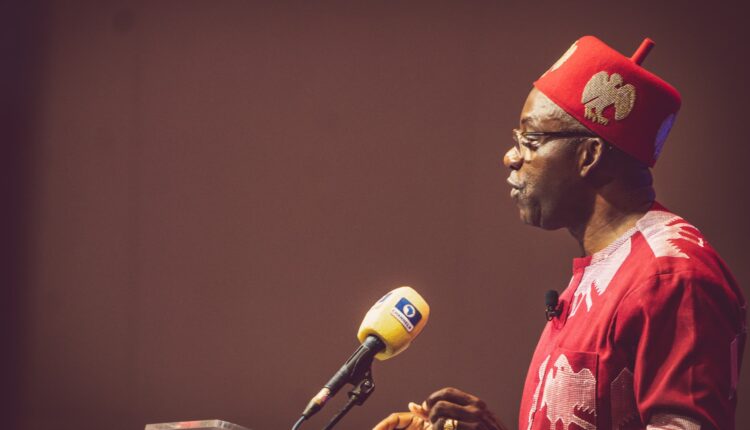
By Christian ABURIME
In continuation of Democracy Day conversations, there is a compelling imperative to espouse a new orientation for Nigerians, including leaders at all levels of government. If we must birth a new, better Nigeria, a new Code of Conduct is inevitable. This is why Anambra State Governor, Professor Chukwuma Charles Soludo, CFR, is calling for radical transparency, empathy, and a transformative approach to governance.

Governor Soludo’s unvarnished declaration that “Nigeria is very poor and broke” sets the tone for a sobering analysis of the nation’s fiscal reality. He highlighted the stark contrast between the country’s dwindling resources, austerity measures, prevailing hardship faced by citizens and the ostentatious lifestyles of public officials.
With projected revenues for the Federal Government amounting to about N6,160 per Nigerian per month and most states, excluding a few like Lagos, generating less than N3,000 per resident per month, the financial constraints are palpable. These meagre funds are expected to cover infrastructure, debt servicing, salaries, pensions, education, healthcare, and security.
Soludo’s position emphasized the urgent need for public officials to develop a consciousness of the public trust they bear. He called for a new code of conduct that instills empathy for the poor and a keen awareness that public resources are the people’s money, not the officials’. “We must be seen to embody the change we preach,” he asserted, advocating for government officials to adopt simpler, more modest lifestyles that reflect the nation’s economic reality.
In a bold suggestion, Soludo proposed a mandatory shift for government officials to use a secured equivalent of the Peugeot 504 from the Murtala Muhammed era, a stark departure from the current trend of luxury vehicles. He also aligned with the sentiment of Reverend Father Mbaka, advocating that all elected public officials should be paid the National Minimum Wage to feel how the shoes pinch common Nigerians. Showing leadership example, Soludo himself has not received a salary since taking office, choosing instead to donate it to the state. This symbolic gesture underscores his commitment to sacrifice and signals readiness for broader change.
At the larger level, Soludo invoked the spirit of the Mass Mobilization for Self-Reliance, Social Justice, and Economic Recovery (MAMSER) from President Babangida’s era, advocating for its reinvention to foster civic duty and accountability. This initiative would serve as a continuous reminder of the sacred obligations of both government officials and citizens. By breaking the transactional bargain between politicians and voters, Governor Soludo aims to disrupt the cycle of corruption that has entrenched itself in the political landscape.
Talking about corruption, a critical part of Soludo’s concern is the need to change the public’s perception and expectations of government officials. He highlighted the paradox where citizens decry corruption but simultaneously applaud officials who flaunt ill-gotten wealth. This societal contradiction, where integrity is often undervalued, must be addressed through a national conversation on accountability and ethical governance. By holding both leaders and citizens to higher standards, Soludo believes Nigeria can make sustainable progress.
So, by proposing a new code of conduct and the revival of MAMSER, Governor Soludo has outlined a path toward a more transparent, empathetic, and accountable governance structure. This transformative vision requires collective effort and a commitment to break the cycle of corruption and inefficiency. Only through such comprehensive reforms can Nigeria hope to emerge from its economic quagmire and pave the way for a brighter future. In other words, by embracing humility, empathy, and a renewed sense of civic duty, the nation can overcome its current challenges and build a more just and prosperous society.


